





Ticks may be small, but they carry diseases that can cause significant health problems. Although they are not a single-handed way to control ticks, welcoming animals that eat ticks into your yard, parks, and community can help make a difference.
Ticks are nasty little buggers! In addition to alpha-gal syndrome, they are responsible for spreading Lyme disease, Rocky Mountain spotted fever, and other tick-borne illnesses. Whether it’s lone star ticks, deer ticks, black-legged ticks, or other tick species commonly found in your area, inviting animals that eat ticks into your yard, parks, and community can help reduce the number of ticks spreading disease.
The information provided on this site is based on my personal experience living with alpha-gal syndrome. I consistently cite and link to expert sources, but nothing published on this site should be perceived as medical advice.
Alpha-gal sensitivities vary by person. You should understand your dietary restrictions, making any adjustments needed, and directing any questions to your physician.
Amphibians and Invertebrates That Eat Ticks
With a few exceptions noted below (I’m looking at you fence lizards), amphibians and invertebrates will eat ticks, but not in meaningful quantities. That said, one less tick in the world is a good thing!

Frogs and Toads
These amphibians enjoy feasting on a wide range of insects that annoy us, including flies and mosquitoes. Frogs and toads are natural predators for ticks and will eat all of the ticks they can find. But having a few frogs hopping around your backyard won’t be enough to fully control ticks.
To help offset the costs of running SageAlphaGal.com, you’ll find affiliate links lightly sprinkled throughout the site. If you choose to make a purchase via one of these links, there’s no additional cost to you, but I’ll earn a teeny tiny commission. You can read all of the legal blah blah blah (as my little niece says) on the full disclosure page.
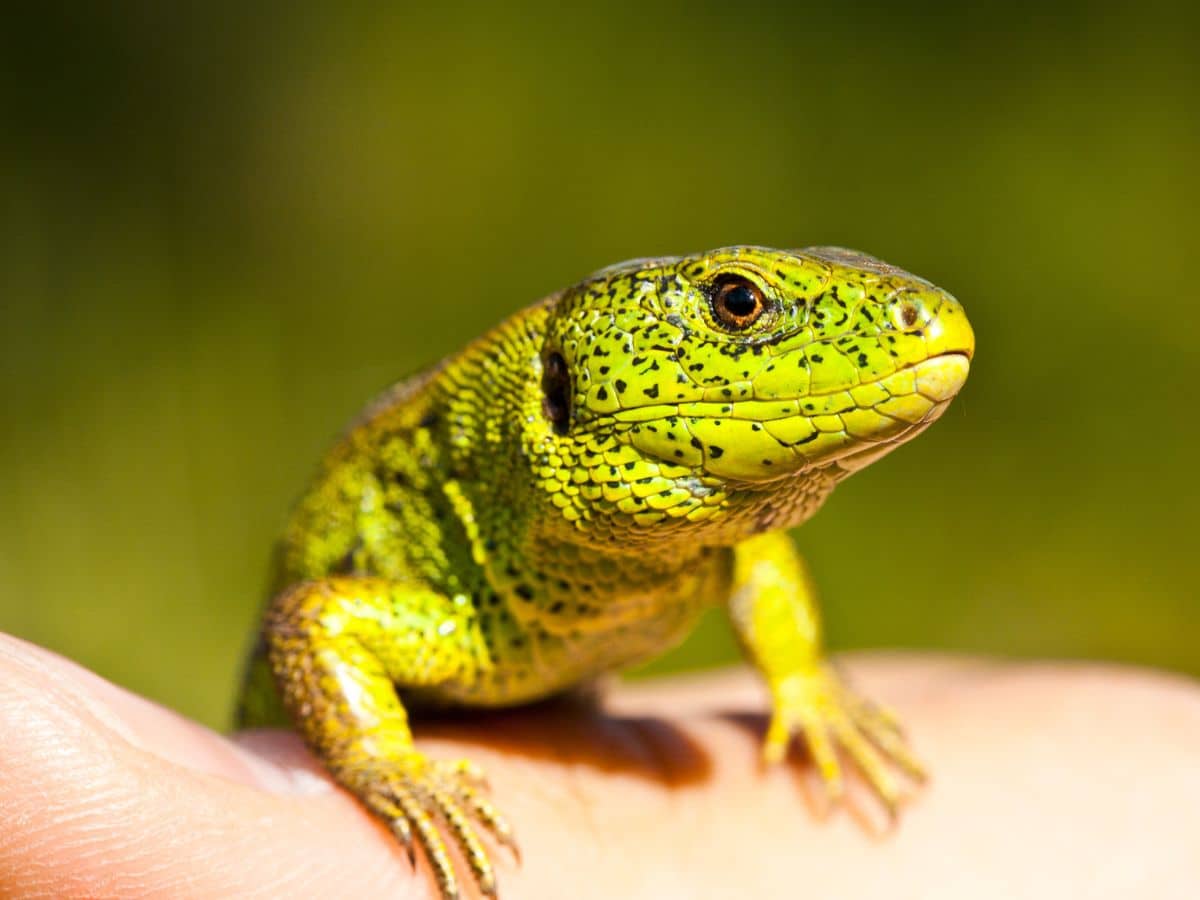
Lizards
While lizards aren’t native to the Northeastern US, these animals help with tick control in two ways throughout the rest of the nation. As animals that eat ticks, lizards naturally control the population by eating the bugs. Lizards like the common Western fence lizard will eat ticks by the millions!
But another way lizards help control tick-borne diseases is by serving as host animals for the bloodsuckers. Why? Because lizards don’t transmit Lyme disease as well as other creatures. So when a tick latches onto and feasts on a lizard – whether it’s a prairie skink or a green anole – the tick is less likely to carry Lyme disease than other animal hosts. And that means a human is less likely to contract Lyme disease if bitten by a tick in lizard country.
Want Alpha-Gal Safe Recipes and More?
Sign up for the weekly newsletter!
Thank You for Subscribing!
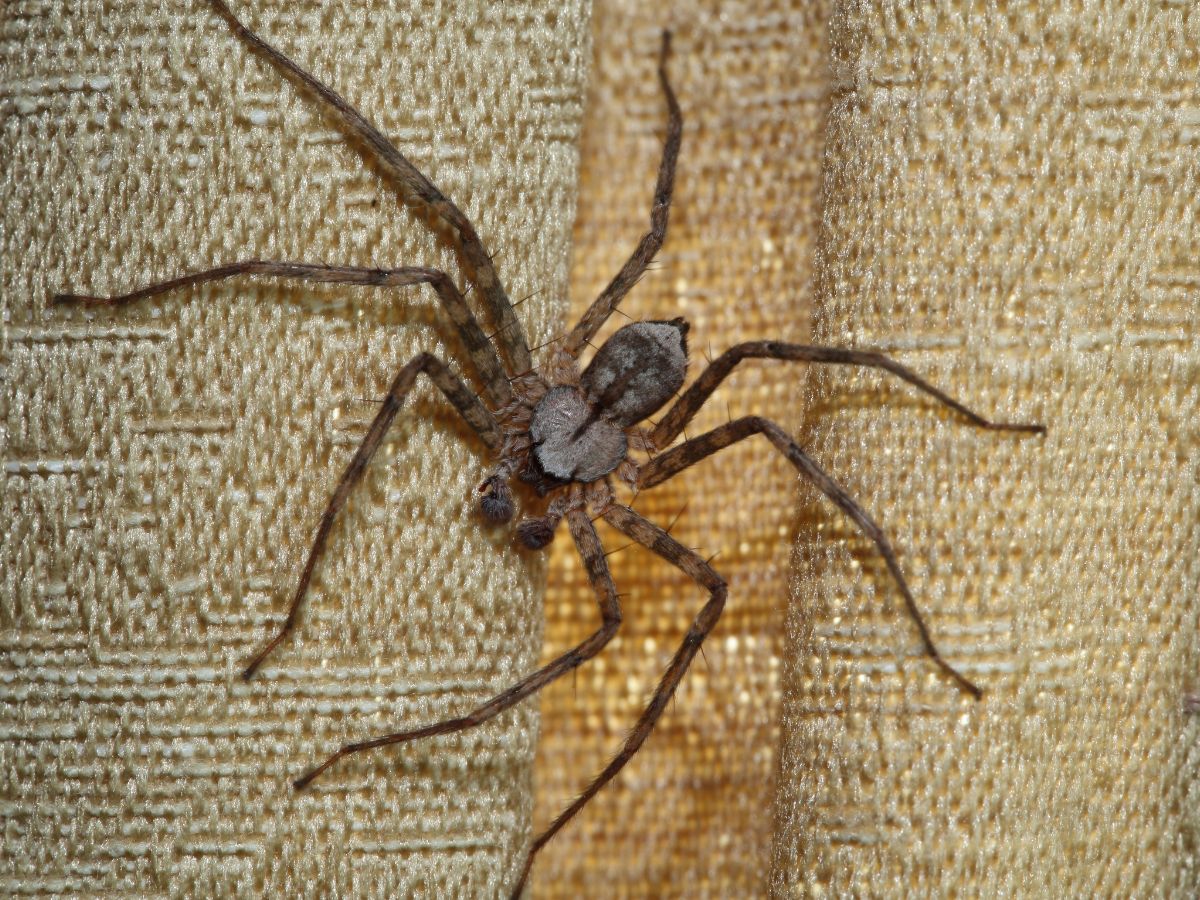
Spiders
Looking for a reason to love the eight-legged insect that creeps so many people out? It is another animal that eats ticks! Two of the best spiders for tick control are wolf spiders and brown recluse spiders. Wolf spiders are reddish-brown arachnids found from coast to coast and even on the lush green island of Kauai. Brown recluse spiders are more common in the middle section of the country where they live in sixteen states from Illinois and Ohio to Alabama and Mississippi.
If a tick is caught in a spider’s web, it will happily sup on the unlucky bug. But I wouldn’t recommend filling your backyard with spiders as a tick control measure. A spider is more likely to catch and consume many other types of bugs in its web before making a dent in your tick population.
Birds That Eat Ticks
From chickens to guineafowl, several birds eat ticks. When you attract woodpeckers to your backyard or keep a few hens for eggs, these tick-eating animals help keep alpha-gal, Lyme disease, and other tick-borne illnesses at bay. And if you live on a farm, adding a few turkeys or guineafowl helps keep ticks off of the people and other animals that call it home.
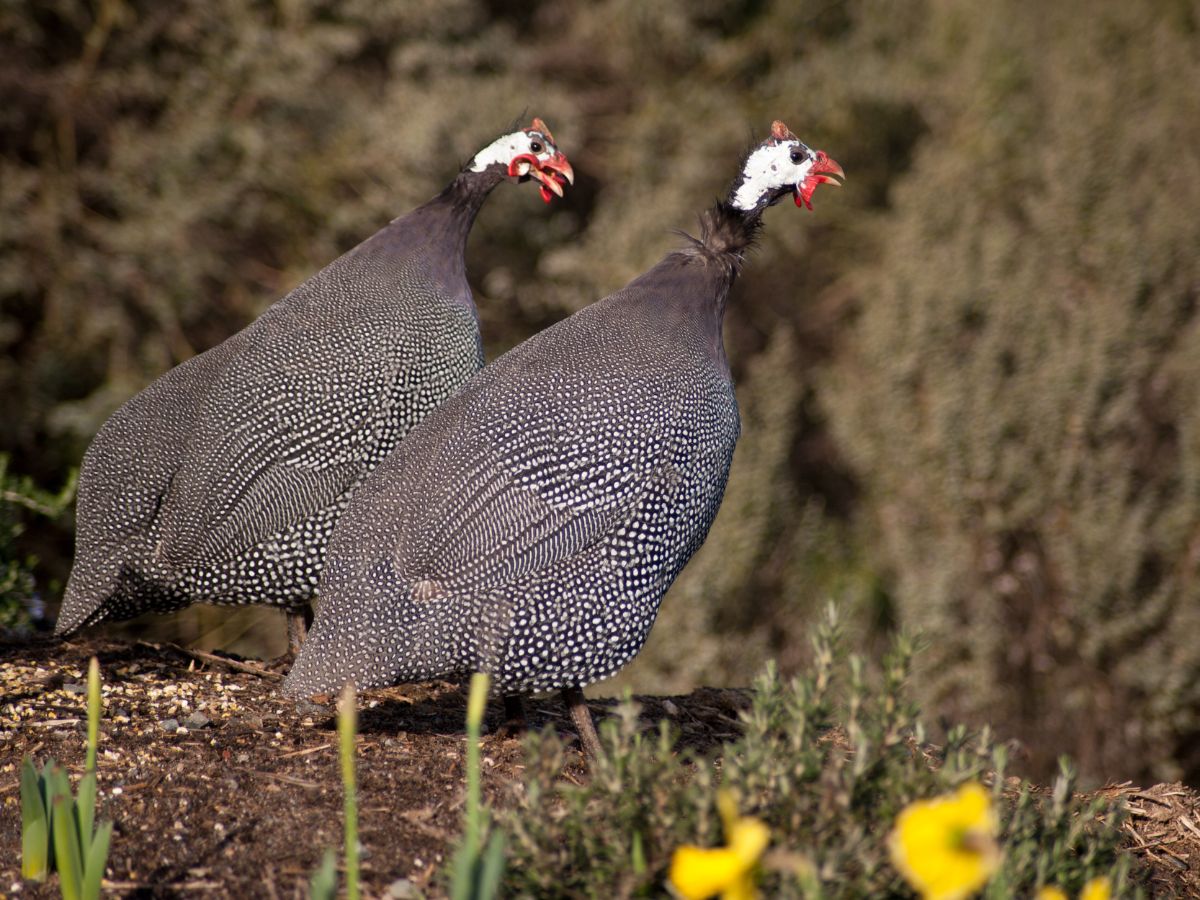
Guineafowl
Unlike the other birds on this list, guineafowl is not native to North America. This speckled bird hails from Africa. But today, domesticated guineafowl can be found around the world. Guineafowl pick up ticks in their beaks and swallow them whole. And because a single guineafowl can easily consume thousands of ticks a year, they have long been a favorite way for farmers to naturally reduce the tick population on their people and herd animals.
Sage Advice: Although guineafowl is officially one word, you may also see it written as guinea fowl (two words). These tick-eating birds are also known as pet speckled hens or original fowl.

Turkeys
While chickens and ducks will happily eat any ticks they encounter, turkeys will seek them out. In fact, it’s not uncommon for a these larger birds to put away up to 200 ticks in one day and to consume tens of thousands of ticks in its lifetime. Attract wild turkeys to your yard by:
- planting oak and pine trees in clearings near wooded areas,
- installing a low-elevation bird bath, and
- sprinkling a little cracked corn or birdseed to entice them to visit and eat the ticks and other annoying insects in your yard.

Ducks
Like most of the birds on this list, ducks will happily eat flies, mosquitoes, and other insects. As they waddle through tall grass, ducks will discover and consume a large number of ticks. However, as with many of the tick eating animals on this list, adding a few ducks to your yard or neighborhood park alone is not enough to control ticks.
Related Article: What to Feed Ducks and Geese (NEVER Bread)

Chickens
If you raise chickens, either for eggs or meat, an added benefit of having these cluckers around is to help control ticks. If there aren’t many alternatives, roosters and hens will feast on ticks in a big way. But if other plants, seeds, and bugs are available, chickens won’t consume as many ticks as turkeys and guineafowl.
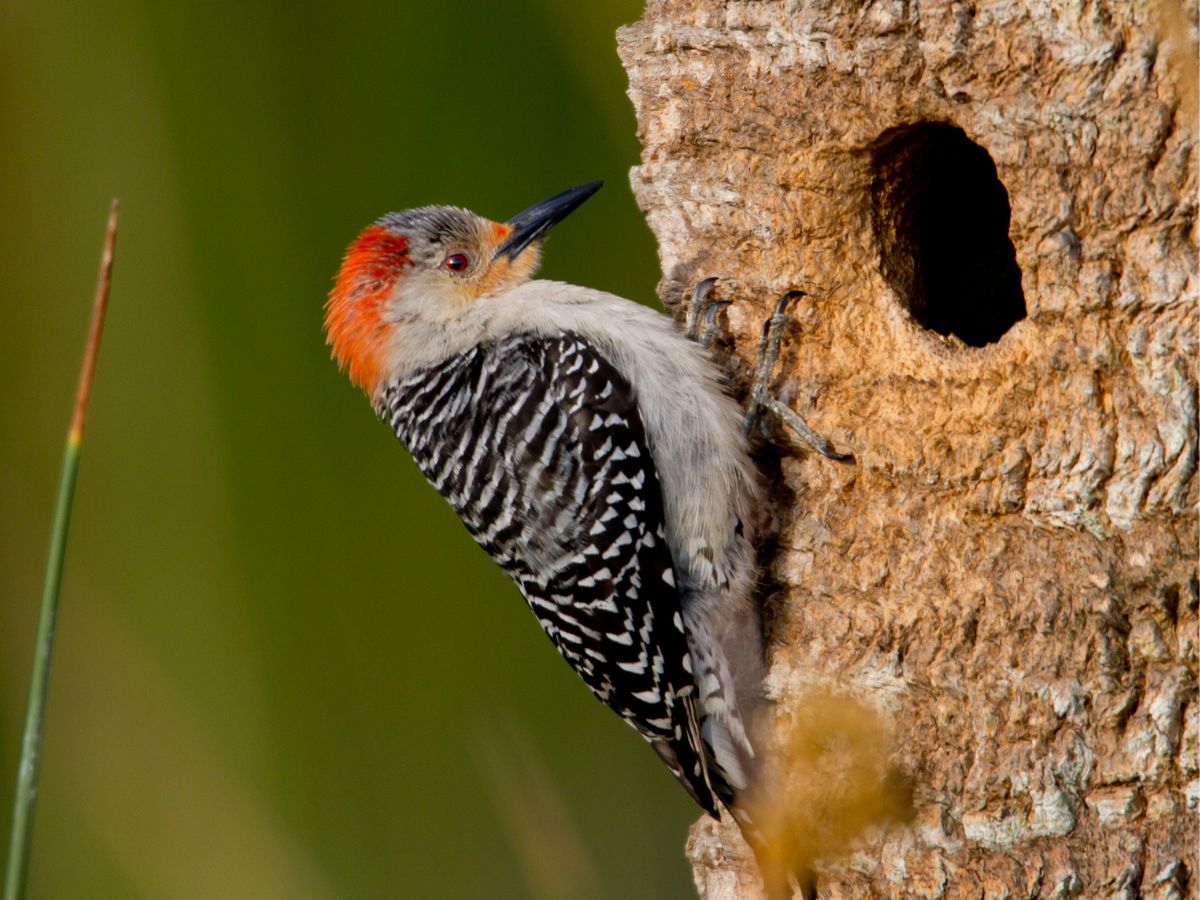
Woodpeckers
While their sharp beaks may be best known for noisily knocking against trees in search of a tasty treat, woodpeckers will also use their long sticky tongues to snack on ticks crawling on a tree trunk. There are more than 15 types of woodpeckers banging on trees and snarfing down ticks across the country, but the downy woodpecker and the hairy woodpecker can be found throughout the United States and Canada.
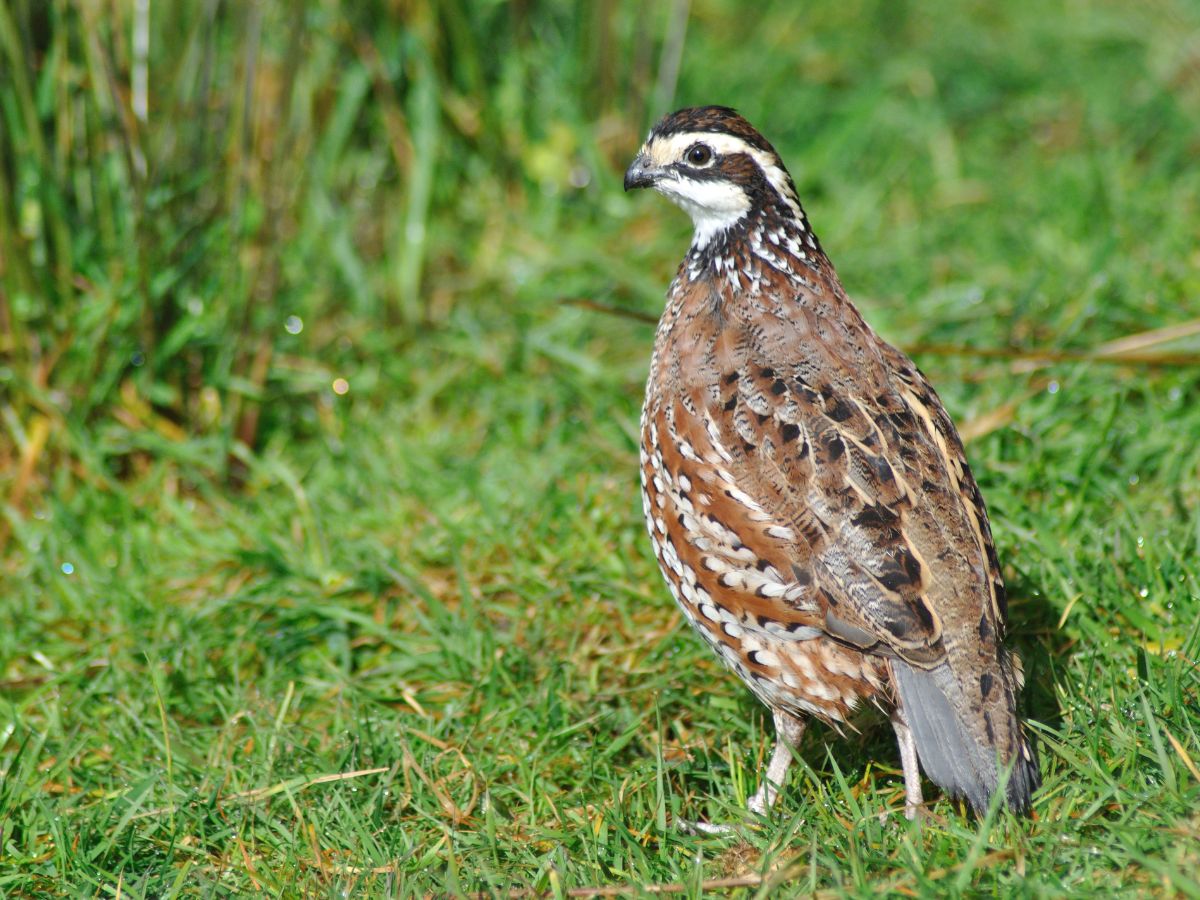
Quails
Like several of the birds on this list, quails are omnivores that enjoy eating a variety of plants and bugs. As they forage for food, quails will eat as many ticks as possible. And while bloodthirsty, disease-carrying ticks don’t do much to benefit humans, ticks are high in protein and other nutrients that are quite beneficial to a covey of quail. As a result, some farms, towns, and other communities leverage quails as part of their efforts to control ticks.
Mammals That Eat Ticks
While most mammals are important hosts for ticks – especially deer and mice – a few mammals eat ticks and help reduce their numbers naturally.

Important Update: This section was written based upon this research cited by the Cary Institute that stated “an opossum can kill about 5,000 ticks.” However, this study conducted a few years later concluded that ticks are not typically part of Virginia opossums’ diets. So, while captive opossums may be tick eating machines, the latter research disproves this statement with respect to wild opossums.
Opossums
Looking a bit like a giant rat, these marsupials are one of the best animals that eats ticks. In the United States, opossums are one of the main predators of ticks. And as they run through the woods or explore your backyard, they suck up hundreds of ticks a day. In fact, one study estimated that an opoussum eats 5,500 larval ticks per week!
One way to attract opossums to your yard is with food, and they will happily dine on seeds dropped from hanging bird feeders and dig through uncovered compost heaps. But keep in mind that bird seed and vegetable scraps will also attract other woodland creatures, including deer and mice that often use those animals as four-legged Uber drivers.

Squirrels
Across the country, you’re likely to see squirrels scampering about and burying acorns in public parks. As squirrels run up trees and sprint across lawns in big, bouncing leaps, they attract ticks looking for a host. But in addition to flowers, fruits, and nuts, squirrels will eat nearly all of the ticks that try to latch onto them.

Chipmunks
These striped cuties are another animal that eats ticks. Like squirrels, chipmunks attract ticks where they live in trees and as they forage and play on the ground. And like squirrels, chipmunks will happily dine on ticks as a part of their typical diet.
Frequently Asked Questions About Animals that Eat Ticks
What animals eat ticks?
From insects to amphibians, from birds to mammals, there are many animals that eat ticks. Some of the biggest tick eaters are opossums, lizards, and guineafowl.
What animals eat the most ticks?
According to this article, scientists conducted a study to determine which of six species were the best tick eaters. Out of white-footed mice, chipmunks, squirrels, opossums, veerys, and catbirds, there was one clear winner. The team estimated that an opossum will kill about 5,000 ticks in a season.
While captive opossums might eat 5,000 ticks in a season, a ground truthing study conducted a few years after the one cited above found that wild opossums do not actively seek out ticks as a food source.
Do bats eat ticks?
No, bats do not eat ticks. Rather, they snack on insects in swarms.
Do opossums eat ticks and mosquitos?
Yes, opossums love to nosh on both of these nasty bugs! They also eat rodents, snakes, garden slugs, and snails. And, to satisfy their need for calcium, opossums will eat their skeletons as well. Nice!
Do raccoons eat ticks?
Like opossums, raccoons will eat all of the ticks they find on their body while grooming.
Do skunks eat ticks?
While skunks enjoy a diet of bugs and larvae, they tend to eat more ants than ticks.
Do spiders eat ticks?
A spider will certainly wolf down a tick caught in its web, but they don’t actively hunt ticks.
Do frogs eat ticks?
In addition to flies and mosquitoes, frogs and toads will happily feast on any tick they find.
Do lizards eat ticks?
Yes, especially the common Western fence lizard that eats ticks by the millions.
Do birds eat ticks?
Several species of birds eat ticks including chickens, ducks, geese, guineafowl, quails, and turkeys.
Using Animals That Eat Ticks for Natural Tick Control
Do you use animals that eat ticks as part of your efforts to control ticks in your backyard and other surroundings? What animals work best for you? Any additional tips and tricks to pass along? Share your experiences in the comments section below.



Thank you for sharing!


Wow, that’s interesting to know about these animals. I’ve never seen a woodpecker in real life but good to know more about them more haha.
We have quite a few in the woods behind our house. They’re noisy, but beautiful. And I’m glad they eat ticks!
How interesting! I knew about spiders and lizards before but not other animals. Thank you for making me learn new stuff
Did not realize there were so many animals that ate ticks.. looks like we have a few of them in our yard naturally 🙂
I’m not ashamed to admit that I absolutely LOVE seeing a possum waddle across my yard on my Ring camera at night. Eat as many ticks as you like, little buddy!